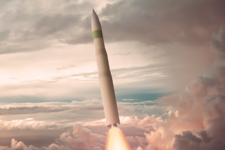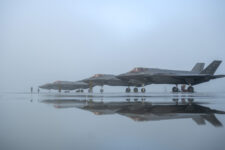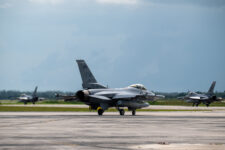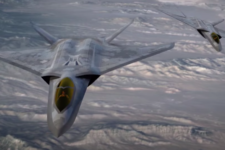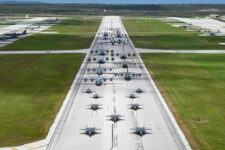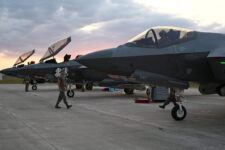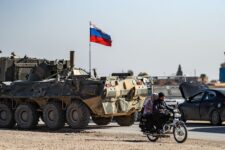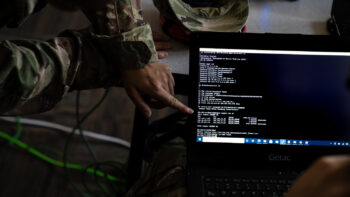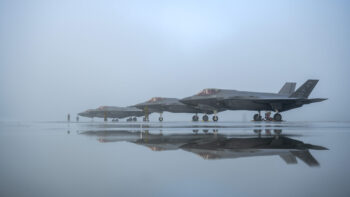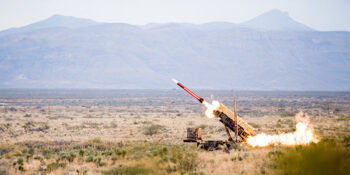
Israeli PM Benjamin Netanyahu (right), IDF Chief-of-Staff Lt.-Gen. Aviv Kochav and Israel Security Authority Director Nadav Argaman (left)
TEL AVIV: Israeli military leaders are publicly questioning America’s commitment to countering what many see as an imminent threat from Tehran and its proxies even as the Israeli Air Force (IAF) seeks more funds to boost air operations against Iranian weapons stores.
“There is a possibility that we will face a limited confrontation with Iran and we are preparing for it,” IDF Chief of Staff Lt. Gen. Aviv Kochavi said at a conference on Christmas Day in Herzilya.
He added that the Israeli Defense Forces are carrying out operations against Iran “on different fronts,” some below the radar, the IDF’s first public admission that it has struck Iranian-related targets.
Weapons depots belonging to the Iranian-backed Hashd al-Shaabi Shiite militia (Popular Mobilization Forces – PMF) have been attacked in Iraq, according to reports. Iranian missiles were stored there and infrastructure for assembling advanced weapons was built there.
A strike on an ammunition cache near Balad air base in the Salah ad Din Governorate (north of Baghdad) on Aug. 20 was attributed to Israel, and was the fourth in a series of attacks and explosions at bases held by the PMF — all in the Baghdad region or neighboring provinces. These included attacks at Amirli base on July 19; Camp Ashraf in Diyala Governorate on July 28; and the Saqr military base in the Dura neighborhood of southern Baghdad on Aug. 12.
“We will not allow Iran to entrench itself in Syria, or in Iraq,” Kochavi said. “Advanced weapons are being smuggled by the Quds Force in Iraq on a monthly basis and we can’t allow that.”
In a dig at Washington, he bemoaned the fact that Israel has had to act on its own in seeking to limit the Iranian threat. Israeli officials fear that Washington has decided to leave the Middle East and let the countries in the region solve their own problems. This feeling is based in part on President Donald Trump’s snap decision on Oct. 6 to withdraw US troops from Syria that surprised US allies including Israel. “The US is leaving this region, and that is creating a new, very critical situation,” an Israeli source said.
An Israeli defense source told Breaking D, the Israeli Air Force (IAF) is pushing for more funds to acquire air-launched munitions — including shifting resources from the ground forces to do so. “The fire power that the IAF will have to produce in a future war will be something that has not been used in the past,” the source said. “In the next war, we will forcefully attack the urban area,” Kochavi said. “The enemy has chosen to settle there, and from there, he will launch thousands of missiles at Israel.”
Kochavi stressed that the IDF “will continue to act responsibly. Unlike the enemy, which is targeting civilians, we will attack in an intelligence-based manner,” he said. “We will warn them, allow them to be evacuated and immediately afterwards we will attack vigorously.”
Government watchdog greenlights Army’s new spy plane contract, denies L3Harris’s protest
The Government Accountability Office issued its decision on December 23, noting that the protest is covered by a “protective order,” and a report on the rationale behind the denial will be publicly released once it’s redacted.




